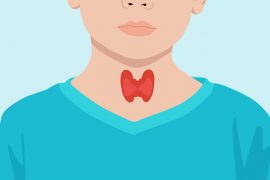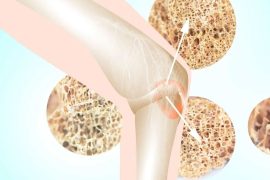A University of Ottawa research team, led by Professor Pascal Imbeault, conducted a study to investigate the impact of sleep apnea on blood lipid metabolism and how it differs between genders. Sleep apnea, characterized by brief disruptions in breathing during sleep, can contribute to cardiovascular disease by affecting blood lipid control. The team, which included researchers Nicholas Goulet, Caroline Marcoux, Renee Morin, Jean-Francois Mauger, and Vincent Bourgon, along with pneumologist Dr. Ruwan Amaratunga, conducted a randomized cross-over trial involving subjects of both sexes.
During the study, participants were exposed to intermittent hypoxemia, a condition marked by low blood oxygen levels, which is a common feature of sleep apnea. This was achieved through intermittent exposure to oxygen-deficient air, simulating conditions experienced during sleep apnea episodes. Additionally, participants consumed high-fat meals to assess the impact on blood lipid levels. Physiological measurements such as triglyceride levels, blood pressure, and oxygen saturation were recorded throughout the trial.
“We achieved our findings by measuring lipids in the bloodstream after a lipid-rich meal, with men and women in good health exposed to ambient air (normal oxygen levels) or oxygen-deficient air intermittently (the latter simulating sleep apnea),” states Imbeault.
The results of the study revealed significant differences between men and women in their triglyceride response following a meal under conditions of intermittent hypoxemia. Specifically, women exhibited more effective control over their blood lipids compared to men. These findings shed light on the complex interaction among biological sex, intermittent hypoxemia, and triglyceride response after a meal. They underscore the importance of considering gender differences in future research and clinical interventions related to blood lipid management and sleep apnea.
“Our work shows that women present a metabolic advantage in managing blood lipids, protecting them from the disruptive effects of sleep apnea. This could potentially explain why women living with sleep apnea present a lower prevalence of co-morbidities (Type II diabetes, cardiovascular disease) than men,” states Imbeault.
The study took place from 2018 to 2023 at the University of Ottawa. “To our knowledge, no study to date has investigated the contribution of biological sex to blood lipids during exposure to intermittent hypoxemia, a condition that simulates sleep apnea,” Imbeault states.
Overall, this study contributes valuable insights to our understanding of how sleep apnea affects blood lipid metabolism and highlights the need for gender-specific approaches in research and clinical practice in this field. The findings have potential implications for guiding future research directions and developing tailored interventions to manage cardiovascular risk factors associated with sleep apnea.
Disclaimer:
The information contained in this article is for educational and informational purposes only and is not intended as a health advice. We would ask you to consult a qualified professional or medical expert to gain additional knowledge before you choose to consume any product or perform any exercise.






